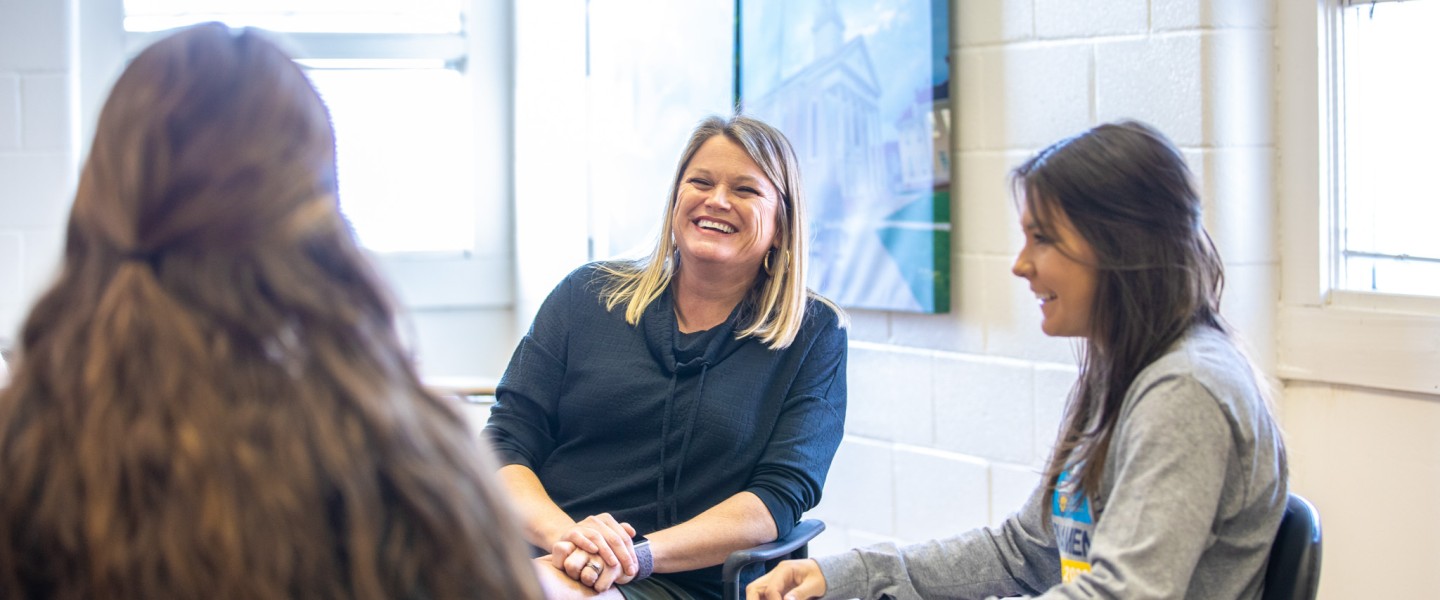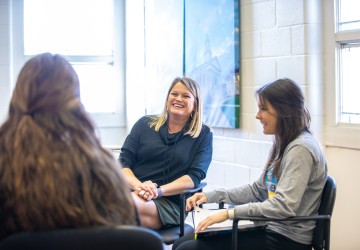The right education can help you pursue your dreams and achieve your goals. That’s a given. And, of course, it would only be natural to apply what you learned in college to your career, right?
But how about a career option where you’re able to draw on every aspect of your college experience—from the day you enrolled to the moment you finished your last final to the time you drew on career counseling resources—all to help others live their best college lives?
That’s what an education centered on higher education and career counseling can do. What is higher education counseling? What is career counseling? Together, they are a calling for professionals who know what it takes to help students from a variety of backgrounds make the most of their college years and their career futures. Like everything worth doing, it isn’t always easy, but it can be personally rewarding.
What Does a Higher Education Counselor Do?
College counselors fill a variety of roles, but all are committed to ensuring that students achieve success in both academics and the professional sphere. For many, this means offering guidance regarding various academic options and career counseling services. Students lacking basic organization and time management skills can also turn to counselors for help with implementing effective study habits.
Many counselors help students work through personal issues, including relationship problems, mental health issues, learning disorders, and substance abuse. By offering much-needed emotional support and guidance, higher education counselors can help students get through trying situations, which might otherwise convince them to drop out of college or put their educational aspirations on hold.
Although much of college counselors' work involves meeting directly with students and faculty members, administrative matters also make up a large part of the average counselor's workday. Depending on the school setting and job title, counselors may be required to gather and analyze data about admitted college students, write grant proposals, or create promotional materials for counseling programs.
Common Work Settings
Higher education counselors work in a vast array of settings, including everything from small liberal arts colleges to large public institutions. Many are employed by two-year community colleges and trade schools to provide academic as well as career counseling expertise. Although the vast majority of higher education counselors assist college students, some work in high school career centers, assisting aspiring college students as they complete applications and seek financial aid. Counselors who work in high schools often hold part-time positions or travel between multiple schools.
A small subset of higher education counselors work on a freelance basis. Instead of working a standard forty-hour week onsite, these counselors may consult with students virtually or from home offices. This approach to higher education counseling allows for greater scheduling flexibility, and sometimes, greater earnings than are possible through traditional counseling jobs.
Career Outlook for College Counselors
College enrollment continues to increase, and as more and more adults pursue degrees, the need for qualified school and career counselors grows more urgent. In fact, according to the BLS, these jobs are expected to grow slightly faster than the average, at 8% growth from 2019-2029. Higher education counseling positions are expected to be especially abundant in coming years, as more and more colleges, universities, and trade schools open career centers for current students and recent graduates.
Becoming a Higher Education Counselor
The hard, but fulfilling, work begins long before you score your first job as a higher education counselor. Given the extensive responsibilities that fall on the average college counselor's shoulders, it is imperative that you gain a thorough understanding of psychology, sociology, and administration, especially as they relate to the higher education environment. (It wouldn’t hurt to look into higher education and career counseling certification opportunities, either.)
These and other topics are covered through the University of the Cumberlands Counselor Education and Supervision program (CES), which allows aspiring counselors to pursue a PhD in leadership and an Ed.D. in Educational Leadership. The program is accredited by the Council for Accreditation of Counseling and Related Educational Programs (CACREP), an organization dedicated to accountability in higher education.
If you aspire to provide much-needed guidance for adults in the midst of a confusing, yet exciting stage of life, you can benefit from enrollment in the Cumberlands Counselor Education and Supervision program. This accredited and acclaimed program will equip you with the skills you need to make a difference in the higher education setting.

